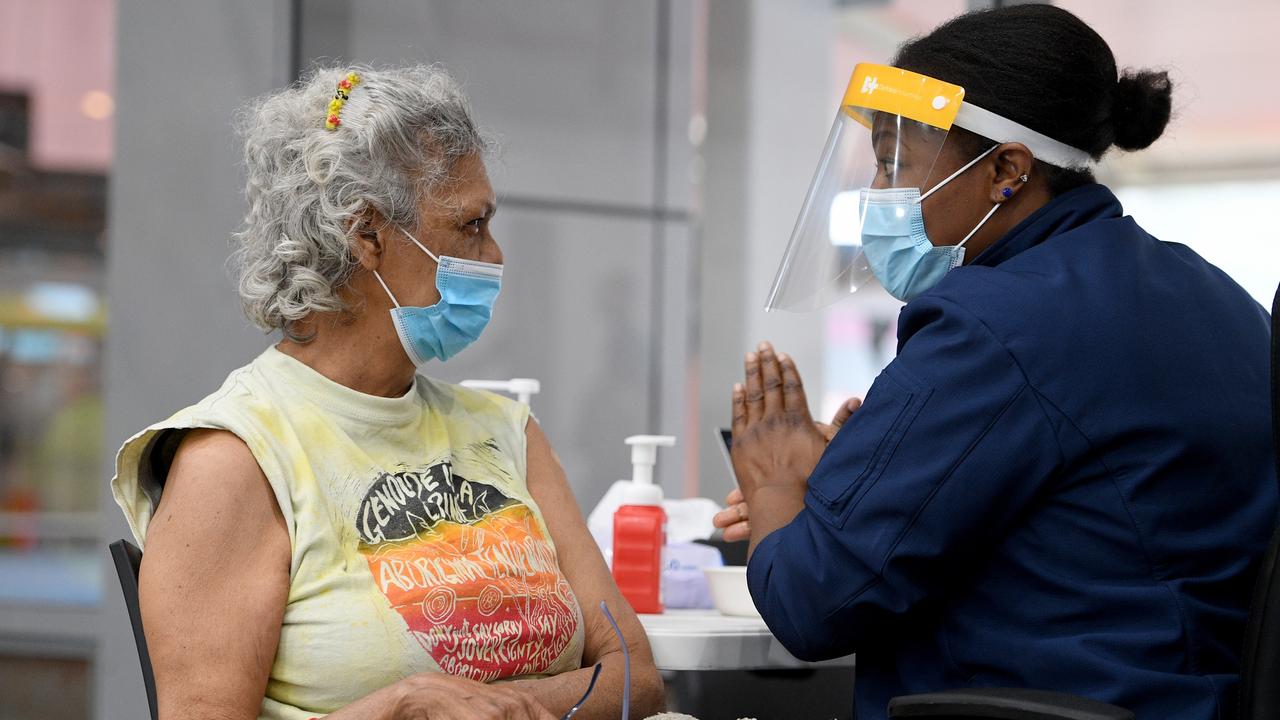Making medical history inside Australia’s largest research bunker at Liverpool Hospital
DEEP inside a hospital in Sydney’s West lies a research bunker with a machine only three medical institutes in the world has, and what the specialists are doing there is revolutionary.
DEEP inside Liverpool Hospital lies a bunker, the biggest in Australia. Its door weighs more than 18 tonne, the walls are 600mm thick concrete and are lined with lead.
The medical research bunker houses something only three medical research institutes in the entire world has — an MRI-Linac — a magnetic resonance imaging device combined with a linear accelerator, which is used to treat cancer patients using radiotherapy.
The challenge now is getting the two to work together. MRI uses strong magnetic fields which influences aspects of normal Linac operation.
Once successful, the machine is expected to improve cancer survival and reduce the side effects from radiation therapy, leading to better quality of life.
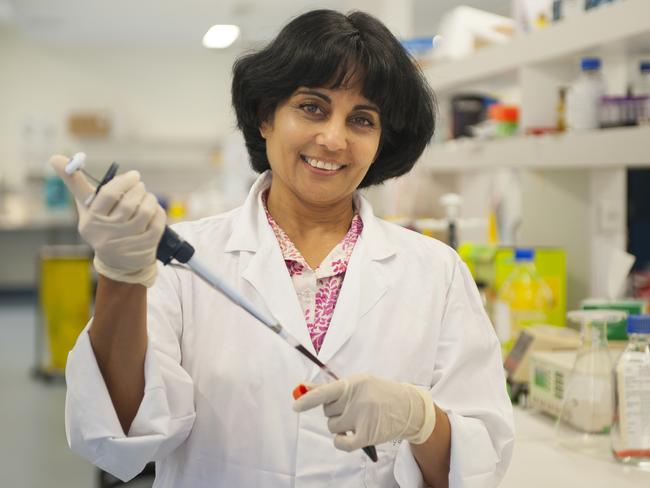
The $20 million project has been five years in the making and it aims to develop the next generation cancer therapy equipment. It will allow specialists in the field to hone in more accurately on tumours and treat them with more precision.
Ingham Institute Applied Medical Research director Michael Barton said he had no doubt the work they were doing was laying the foundation for cancer treatment into the future.
“We’re the first department in the country to have our own MRI machine,” he said.
“Just like when CT machines were brought in, Liverpool was the first in the country to have its own.
“What we’re doing in the lab and in other cancer research at the institute, meshes everything together.”
Professor Barton said it was the institute’s vision in cancer research that allowed them to develop the project and make it a reality.
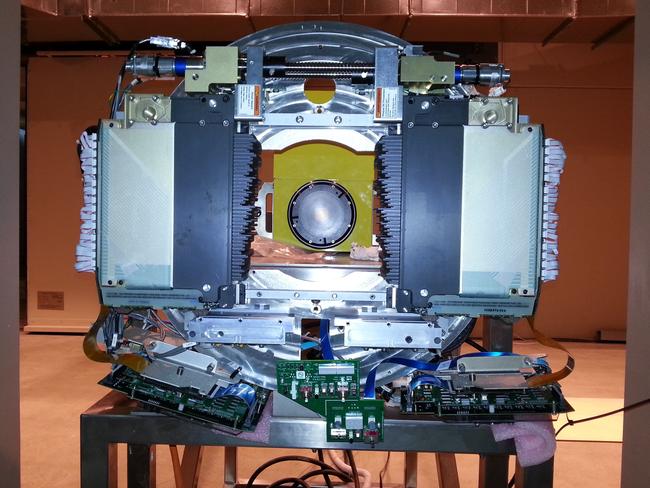
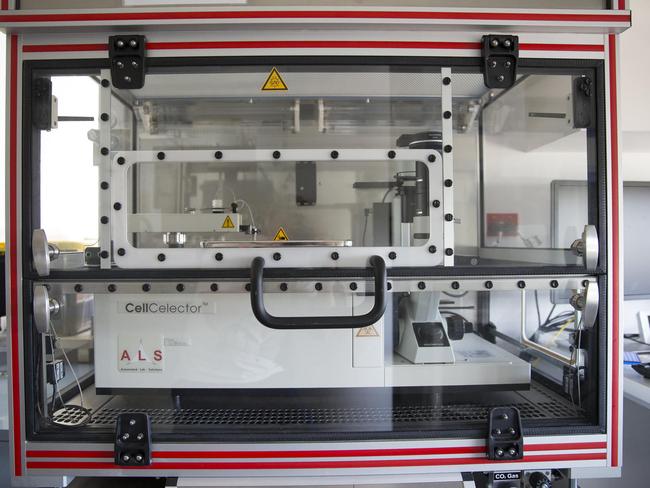
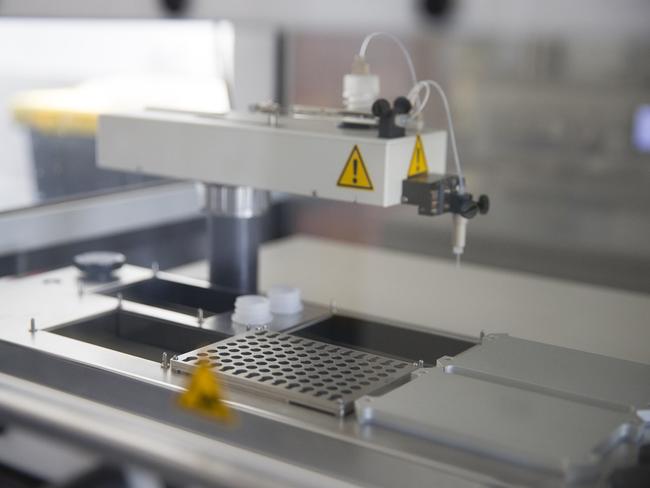
BOWEL CANCER SURVIVOR HELP TEACH FAMILIES RESILIENCE
CANCER RISK COULD BE HIDING IN YOUR WORKPLACE
Ingham Institute Applied Medical Research director Michael Barton said he had no doubt the work they were doing was laying the foundation for cancer treatment into the future.
“We’re the first department in the country to have our own MRI machine,” he said.
“Just like when CT machines were brought in, Liverpool was the first in the country to have its own.
“What we’re doing in the lab and in other cancer research at the institute, meshes everything together.”
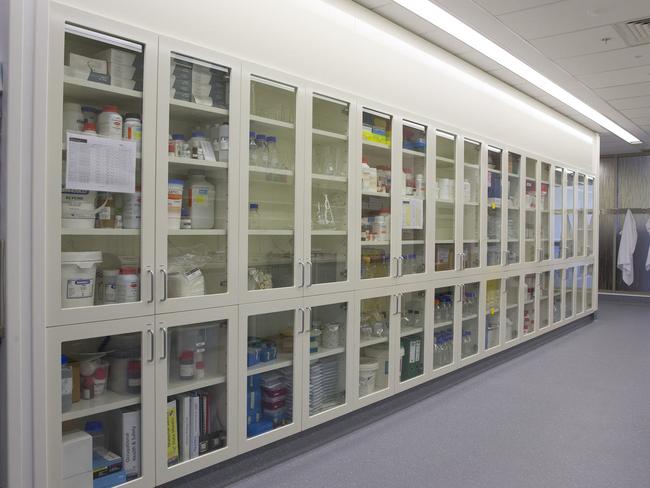
Professor Barton said it was the institute’s vision in cancer research that allowed them to develop the project and make it a reality.
He said when people questioned the way forward, he said it was like comparing black and white television to colour.
“It’s one of the top projects in the world,” he said.
“About half of all cancer patients need radiotherapy ... nearly every cancer will be treated this way eventually.
“Radiotherapy is very precise. And this machine acts like a giant microscope — being able to see tumours better allows us to treat it better. The sky really is the limit.”
Changing patient anatomy and physiology can be visualised during treatment with the machine, dramatically improving the radiotherapy accuracy.
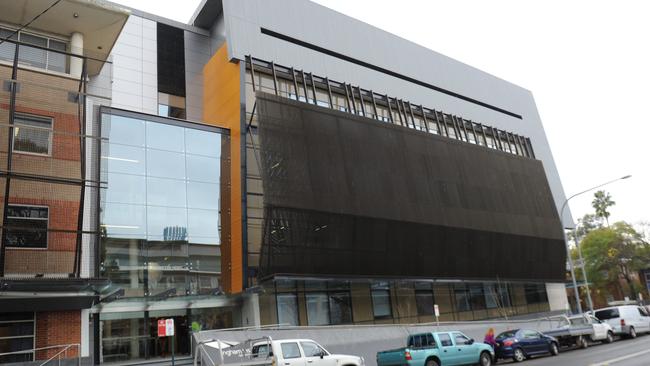
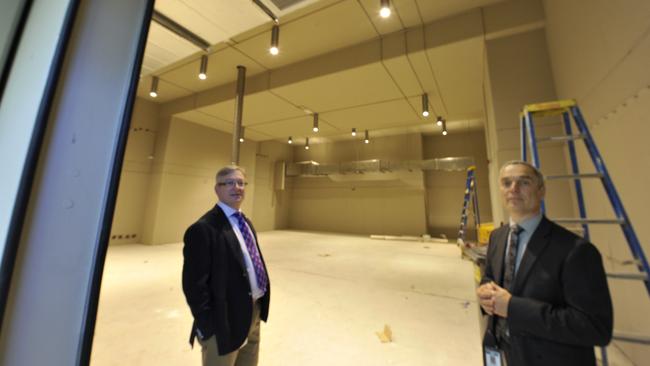
The project is driven by research collaboration of the Radiation Physics Lab, Ingham Institute and the Centre for Medical Diagnostic Technologies at the University of Queensland.
The bunker took six to eight months to build. There are seven universities also involved.
THE BENEFITS
■ Current radiotherapy treatment, healthy tissue around moving tumours must be irradiated to make sure the tumour is always in the treatment beam
■ Integrating MRI imaging with radiotherapy allows the treatment beam to precisely and accurately focus on the tumour
FIND OUT MORE
Residents can learn more about the Ingham Institute’s research and ask questions about diseases and health conditions.
The Ingham Institute Applied Medical Research will hold a community forum on Thursday, October 15 at Liverpool Catholic Club at 7pm.
The institute has a broad portfolio of research in cancer, injury, mental health, diabetes and the early years.
The forum will expose two areas in cancer they’ve been researching —psycho-oncology and infectious diseases research.
Speakers are Professors Afaf Girgis, Michael Barton OAM and Iain Gosbell. Attending is free, but you must register by calling 1300 665 541 or visit HERE.

